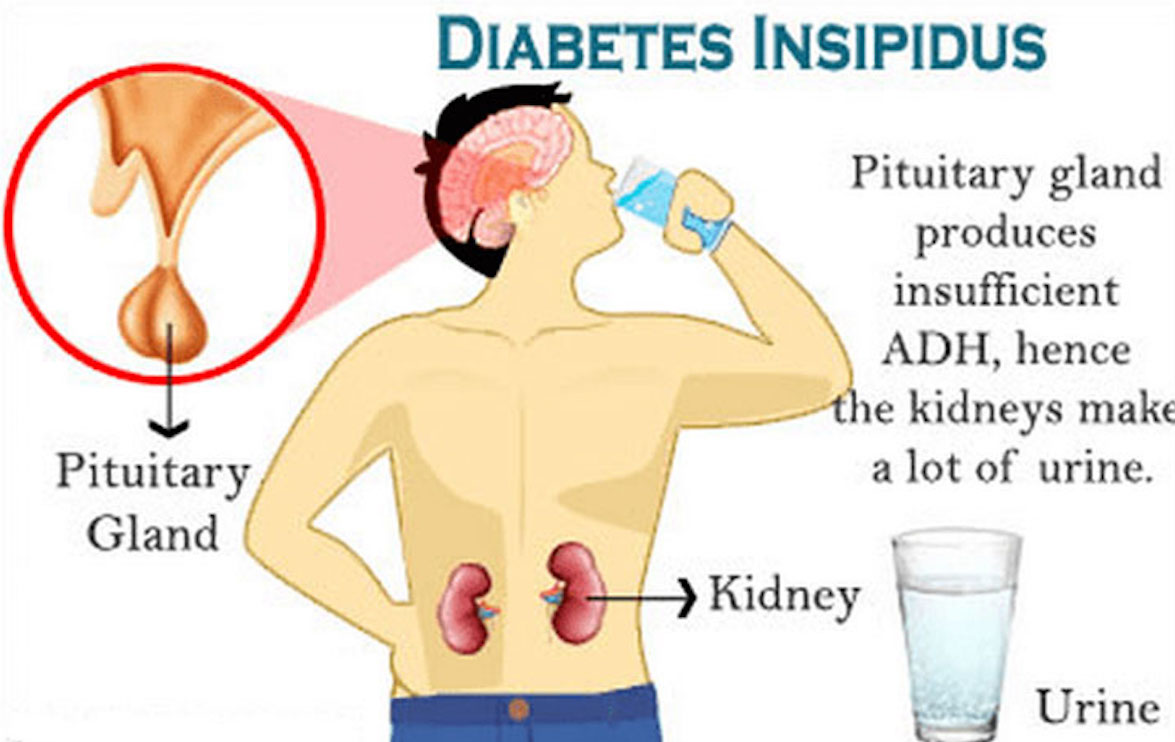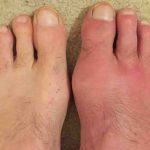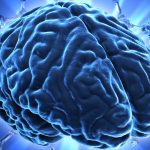Diabetes insipidus, not to be confused with the much more common and unrelated diabetes mellitus, is a rare health condition that causes an imbalance of water within the body. The result is an increase in the amount of urine excreted and a seemingly unquenchable thirst. Unfortunately, at present there is no cure for diabetes mellitus. However, luckily for those with this condition, there are certain treatments that can help to limit the abovementioned symptoms. Continue reading to learn more about both the causes of diabetes insipidus and its related symptoms.
Causes of Diabetes Insipidus

The two different types of diabetes insipidus have two distinct causes. However, both are related to the hormone vasopressin, which is an antidiuretic. The first type, known as central diabetes insipidus (aka neurogenic or vasopressin-sensitive diabetes) is the result of an insufficient amount of vasopressin being produced by the hypothalamus and secreted by the pituitary gland in the brain. The second type, called nephrogenic diabetes insipidus is the result of a normal level of vasopressin produces, but the kidneys are not able to respond to it efficiently.
More from Things Health
-
The Silent Signs and Symptoms of Diabetes
Early awareness of this serious disease is essential as vital organs and tissues can be compromised leading to permanent damage. It is possible to have…
-
Symptoms of Gout
Gout is a form of inflammatory arthritis characterized by recurrent attacks of a red, tender, hot, and swollen joint. Pain typically comes on rapidly in…
-
Symptoms Of Epilepsy
Epilepsy a neurological disorder marked by sudden recurrent episodes of sensory disturbance, loss of consciousness, or convulsions, associated with abnormal electrical activity in the brain.…
-
Symptoms Of Ovarian Cancer
Ovarian cancer is often referred to as a quiet disease as it usually isn't discovered until it is in the advanced phases. In nearly all…
-
Symptoms of Adult ADHD
It is not easy for a doctor to diagnose adult attention deficit hyperactivity disorder. An adult will understand the signals of ADHD in himself or…






